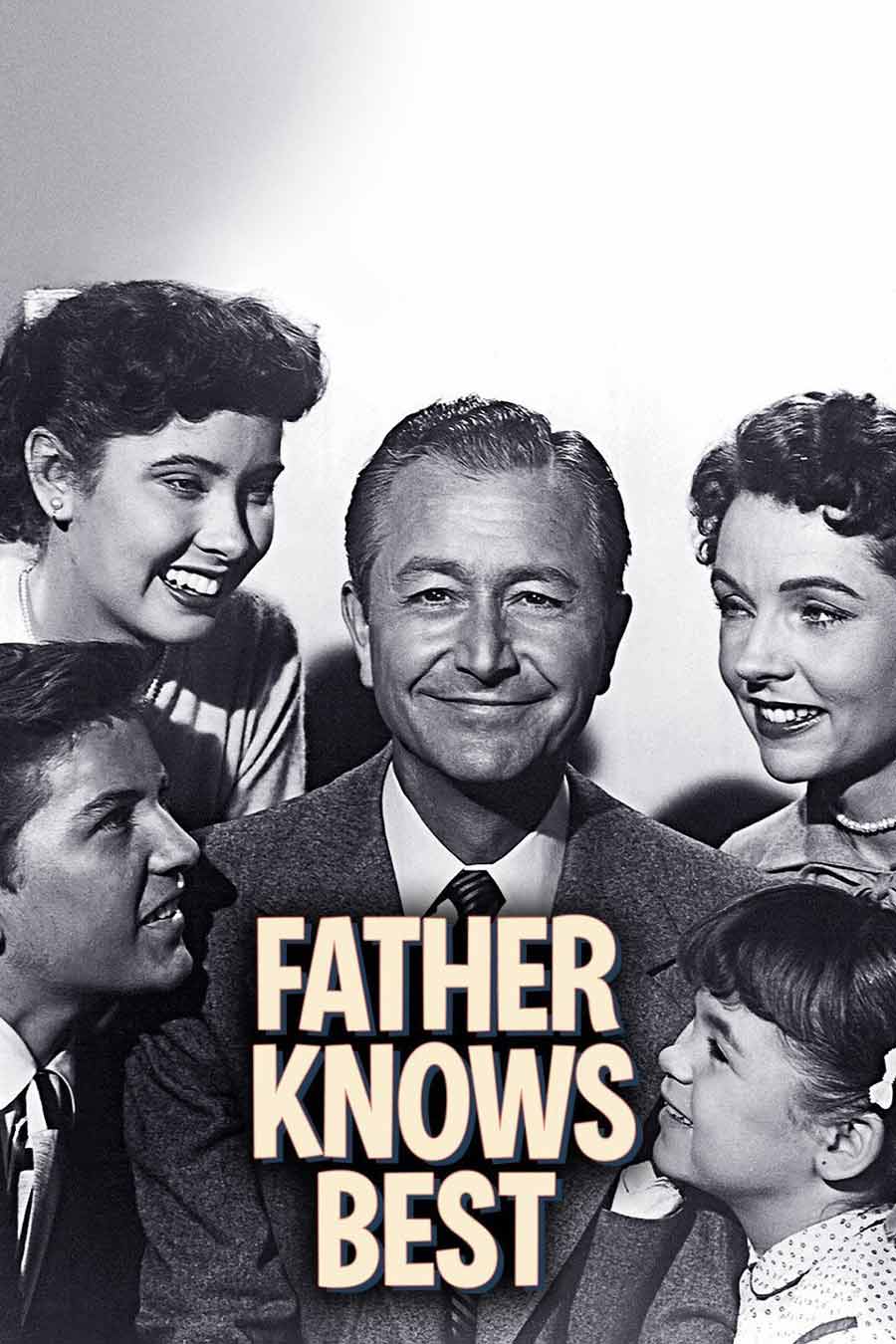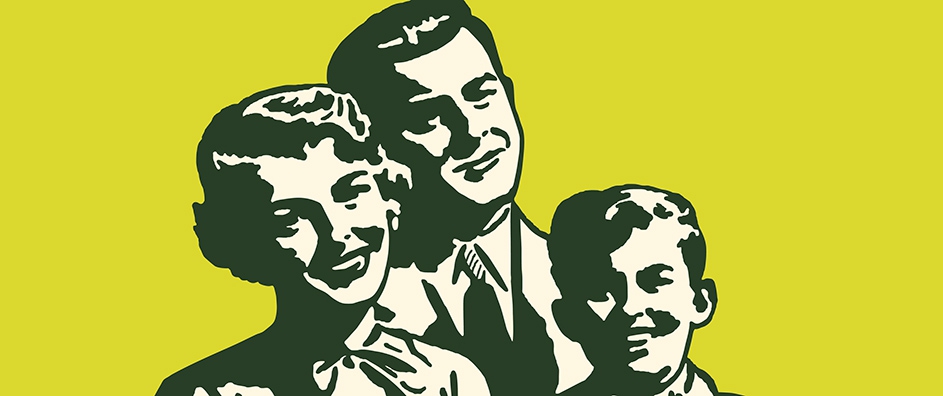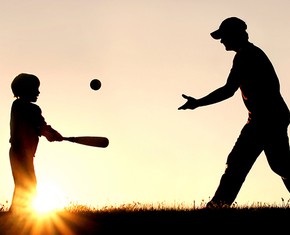The views expressed in our content reflect individual perspectives and do not represent the authoritative views of the Baha'i Faith.
During my childhood, father always knew best. Even though, in my family, Mom was probably brighter than Dad, he made the rules.
Did you grow up in one of those “father knows best” families?
No surprise if you did—that’s the way it’s been in most families for centuries, if not millennia. This paternalism, long the prevalent practice in human history, assumed that the father had the right to control and dominate his family; and that consequently men had the right to control and dominate civilization. Webster’s Dictionary defines it this way:
paˑterˑnal adj. [Latin pater, father] of, like or from a father
paˑterˑnalˑism n. the governing or controlling of a country, employees, etc., in a manner suggesting a father’s relationship with his children
In the United States, the paternalistic approach toward family dynamics famously found its way into a popular television series in the 1950s and 1960s called Father Knows Best. In my family, we watched Father Knows Best every week. A light sitcom about a wholesome middle-class white family, it portrayed the traditional nuclear family roles—clueless but sincere kids; happy homemaker mom; and of course, father usually knew best. Like most sitcoms, it wrapped up each half-hour episode with a neat bow, suggesting that the wise, patient father figure could easily solve most of the familial and social issues that arose in their bland, racially-segregated suburban utopia.
 Later I learned that the series started out as a radio show, with the title Father Knows Best?, which at least implied that Dad’s dominance was dubious. When it made the transition to television, though, they dropped the question mark. All three of the major networks ran the show at various times, and it became an iconic portrayal of a supposedly idealized American family, guaranteed to make most of the actual families who watched it feel dysfunctional and deeply troubled when they compared themselves to their TV counterparts.
Later I learned that the series started out as a radio show, with the title Father Knows Best?, which at least implied that Dad’s dominance was dubious. When it made the transition to television, though, they dropped the question mark. All three of the major networks ran the show at various times, and it became an iconic portrayal of a supposedly idealized American family, guaranteed to make most of the actual families who watched it feel dysfunctional and deeply troubled when they compared themselves to their TV counterparts.
(In real life, though, the actor who played the father on Father Knows Best was a depressive alcoholic who attempted suicide in his later years; and the actor who played the son became a heroin addict.)
As a child, I accepted the paternalistic family model because it was all I knew. Every kid I hung around with had a Dad who ruled the family like a king, too. I only knew one single-parent family—the father had died—and that seemed like a truly strange anomaly at the time.
I naturally accepted paternalism, too. When I was small I thought that because the father was the head of the family, a man should naturally be the head of the town where I lived, and the state, and the country. The idea that a woman could run a government and rule over men seemed bizarre, unheard-of and completely out of the realm of possibility.
Then I grew up.
I grew up into an adult world where the feminist movement had just started to upend the old paternalistic systems in families, in companies, in leadership, in the arts, in governance and in life. In schools and in the university I attended, women worked as principals, professors and chancellors. In business, women had become CEOs, and in my professional career I worked with and for several outstanding female bosses. In government, I voted for and was proud to be represented by women at almost every level of elected leadership. My wife, a consummate professional and the founder and inspirational leader of a global educational movement, continues to amaze me every day with her dedication to underserved children.

Also, the same day I became an official adult—on my 18th birthday—I became a Baha’i, the Faith that believes women and men are equal:
Baha’u’llah declares the absolute equality of the sexes. The male and female in the mineral, vegetable and animal kingdoms share alike the material bestowals. Why should there be a difference in the human kingdom? Verily, they are equal before God, for so he created them. Why should woman be deprived of exercising the fullest opportunities offered by life? Whosoever serves humanity most is nearest God—for God is no respecter of gender. – Abdu’l-Baha, Divine Philosophy, pp. 82-83.
As you might imagine, growing up the way I did, the Baha’i teachings challenged my view of the world. Sure, I liked the women’s movement and thought, on an intellectual level, that men and women should be equal. On the surface, I fully accepted the Baha’i principle of gender equality. But I still had some of the old paternalism rooted deep in my consciousness; along with the remnants of the attitudes I grew up with—and I soon realized that I would need to work hard to get rid of some of those unconscious prejudices and preconceptions.
In this series of essays, I’ll try to explain that process. We’ll look at paternalism and how it still plays itself out in families, in the workplace, in government, in religion and in the life of our civilizations; and we’ll see what the Baha’i teachings recommend for its final extermination.
You May Also Like
Comments

















And the Simpsons became so popular that people began to emulate it. And what began as an inversion of a trope has now become a trope in and of itself. Idiot fathers in current media are the norm. This is true for the vast majority of modern sitcoms and children's shows.
It's interesting to see how tropes change over time.
these reassuring and fair-minded fathers, and am sure many like them existed. However, WWII
probably set the stage for
a retreat into myths
that were stable and comforting......for some.
There was also a history of comic role reversal, though, like Molly McGee
vs. "Fibber", Eve Arden in
"Our Miss Brooks", and the
high point in Alice Kramden of "The
Honeymooners". Of
course, Archie Bunker
was a legendary symbol
of the male down-side.
"The Walton's" ... was a nostalgic but fact-based show, with parents who
lived in equality and teamwork!